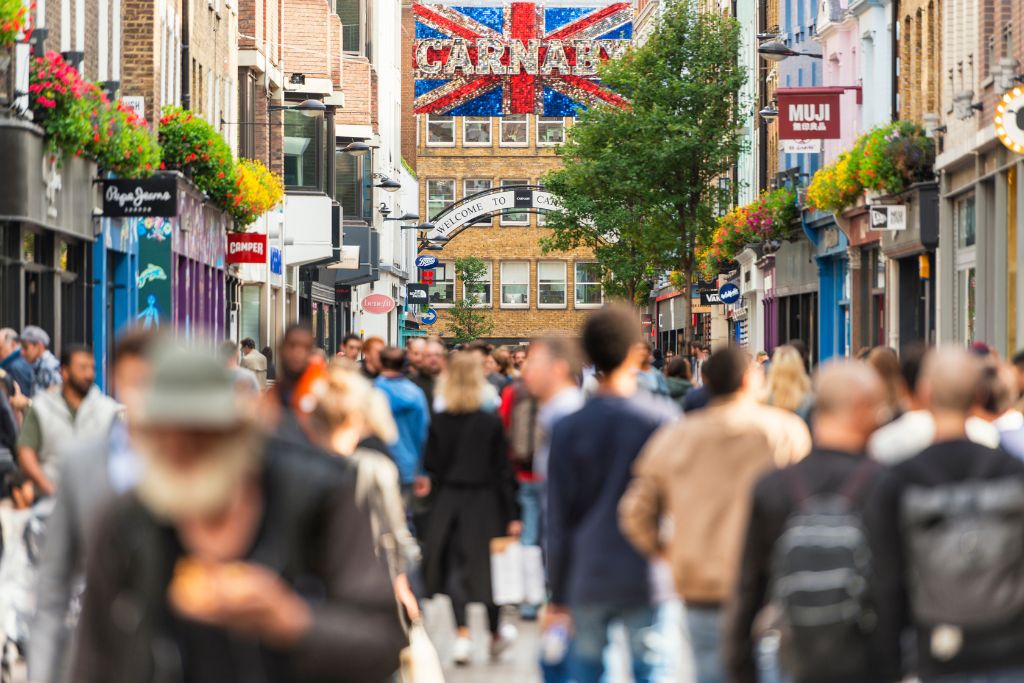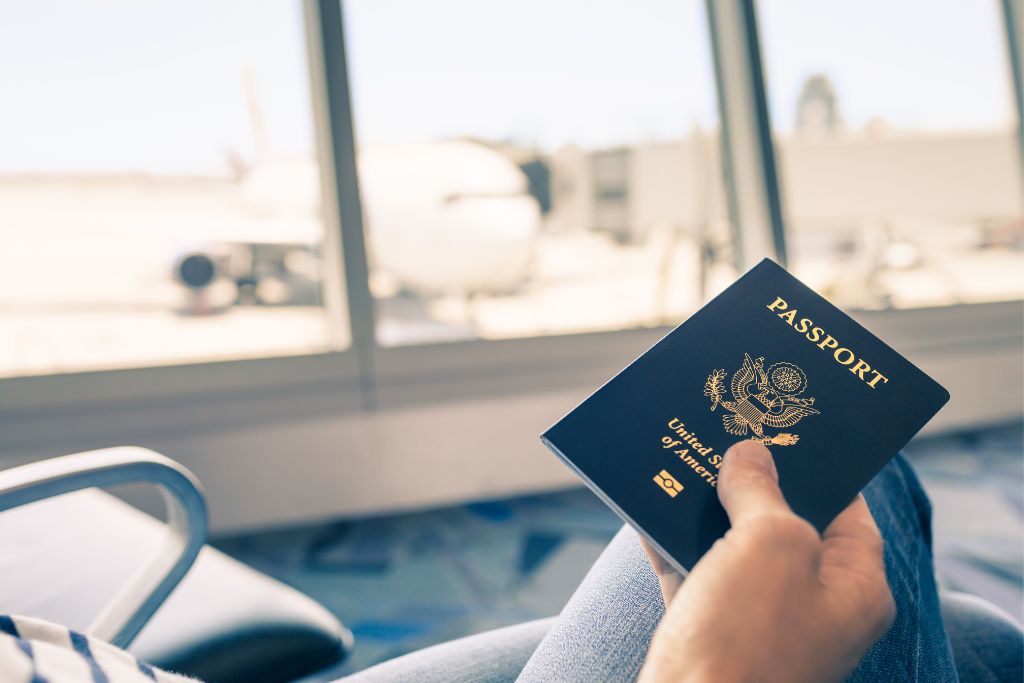My first year of expat life felt like a roller coaster. Excitement and anxiety battled constantly, leaving me feeling like I’d either made the best decision of my life… or the worst.
Expat homesickness is a part of the moving abroad process. Moving to a new country is exciting and provides many rewards, but culture shock can still drag you down into low feelings of missing home.
I found it really helpful to learn about what causes feelings of homesickness, and what steps I could take to feel better. Recognizing the phase I was going through went a long way on the days when it felt like I’d made a terrible decision and would never fit in to my new home. If you’re feeling low, I hope these tips help you on your journey.
This article contains affiliate links, which means that I may earn a small commission when you make a purchase. Affiliate links cost you nothing to use, and they help keep my content free – a win-win! For more information, see the affiliate disclosure.
GET READY TO MOVE TO THE UK WITH THESE TOOLS
✅ Be ready to drive on the left with Tripiamo’s comprehensive video driving guides.
✅ Future proof your finances (even if you’re in debt) with Slay the Stock Market (50% off with this link!)
✅ Save an average £167 per year on train travel with a UK Railcard
Expat Homesickness Phases
Homesickness is a natural part of the culture shock all expats experience. Culture shock tends to come in waves, with four distinct phases:
The Moving Abroad Honeymoon Phase
This phase comes when you’re newly arrived and everything feels fresh and exciting. You’re busy setting up your new life and there are new things to explore around every corner.

Enjoy this time. It typically lasts from a few weeks to the first few months in a new place.
The Moving Abroad Frustration Phase
This tends to be when your homesickness first kicks in. No matter how well prepared you are for your new life abroad, you are going to reach a point where everything just feels hard. Maybe the local bureaucracy is hard to navigate, work hits a rough patch, or you miss the deep connections you had to family and friends.

Whatever the reason, you find yourself feeling tired, frustrated, lost, and anxious. Aside from the tips for coping with homesickness we will get to below, try to remember your excitement from earlier in this journey and remind yourself that this phase won’t last forever.
The Moving Abroad Adaptation Phase
This phase marks when you begin to move past the frustration and find renewed love for your new home.

Commonly occurring around 6 to 9 months following your move, this aligns with when you start to accept your new life and have established routines. You are less likely to be surprised by different ways of doing things and start to remember why you wanted to make this move in the first place.
The Moving Abroad Acceptance Phase
This phase marks when you reach feelings of comfort and security in your new home. You may not have the honeymoon levels of excitement, but your expat home now just feels like home.
Once you hit the acceptance phase, you are more likely to experience reverse culture shocks while visiting your old home. Things that were once part of your daily routine can now feel strange or jarring.

Homesickness can still crop up in your new home after you hit acceptance. It is normal to feel down at times across all of these phases and you may cycle through them more than once. However, you will find yourself spending more time in the acceptance phase as culture shock fades with time and experience.
10 Coping Tips For When You’re Experiencing Homesickness
Ok, but what can you actually do to feel better when you’re experiencing homesickness? There’s no guaranteed cure, but try these tips for the best way to help alleviate feelings of homesickness.
1. Identify What’s Making You Feel Down
Be honest with yourself. It might help to write your feelings down in a journal or simply take some time alone to think it through. Ask yourself what recent experiences have caused you frustration, anger, or sadness. Have these experiences made you remember how easy it was to have similar pleasant experiences at home?

Did you see pictures of a friend celebrating a milestone event that you had to miss because you don’t live close? Maybe it was as simple as being unable to find a comfort food item in the grocery.
Reflecting won’t solve your homesickness on its own, but it can help start you thinking of what might help to alleviate those stresses. Can you set up a chat with your friend to catch up? Can you make a comfort food item yourself or have it shipped to you?
2. Discover What Makes Your Expat Home Great
One of the most helpful ways to battle homesickness is to focus on the things you love about your expat home. Make a list of things you want to experience and set aside time to actually go do them.
Is this your first time living in a big city with lots of museums and cultural events? Go explore them. If you love having easier access to traveling places on your bucket list, start planning a trip.

Even small things like walking through a neighborhood you’ve wanted to experience can help revive some of those honeymoon phase feelings and remind you why you’re here. I still feel a sense of awe and tremendous luck every time I walk through parts of London.
3. Work On Your Home Environment
It’s hard to feel at home when your home feels temporary. While I advocate for leaving a lot behind in my guide to packing for your move abroad, small things that bring you joy should absolutely come with you. Display those items proudly and then add items discovered in your new life to the mix.

Your home reflects your individual personality and should feel comforting and safe to you. You don’t have to be a design expert either. Turn your kitchen into a house plant greenhouse. Smother your couch in blankets. There is no wrong answer when designing your new environment, as long as it feels good.
4. Be Mindful Of Connections
Staying connected with family members and friends back in your home country is easier than ever thanks to video calls, messaging apps, and social media. This can be a big help to feel connected back home.
Be careful, though, of relying so heavily on old connections that you don’t let anything new in. You don’t want to spend all of your free time talking about what’s happening back home when you could be out having the experiences that inspired you to move abroad in the first place.

One of the hardest parts of living abroad is seeing what you miss back home on social media.
Remember that the number one rule of social media is that it’s a highlight reel. Things look great from a distance that might not be as wonderful if you were there. Your friends are likely looking at your social media too and marveling at your great adventure. We can’t live two lives at once. Don’t beat yourself up for not being back where you were for every event and highlight.
If you find yourself homesick every time you look at social media from your old life, take a break from it. It’s ok to prioritize connecting with the space you inhabit now. No one can enjoy the moment they’re in while staring at an idealized version of what might have been.
5. Feed Your Brain With Creativity or Activity
Write in a journal. Paint a picture. Go for a run. These may not seem to have anything to do with homesickness, but giving your brain a positive outlet can help turn a negative day around.

If you aren’t sure which creative or physical activity would best do the trick, sign up for a class or exercise group. This is a great time to try something new. If you’ve moved to a country where you don’t speak the local language, then joining a language course will help you learn and keep your brain active.
6. Meet New People
It can be really hard to make new friends when you move abroad. Many of us have had the same set of friends since childhood, and making new friends as an adult can be a big challenge.
However, establishing new friends is often the first thing to make us feel adapted into our new culture. No one gets to best friend status overnight, so expect it to take some time for those new friendships to grow.

Making new friends mostly comes down to putting yourself out there. I’m an introvert and fully understand how scary that sentence is. To start, look for groups or events through Meetup or Eventbrite that center around your interests. Connecting with other like-minded people over things you already love makes conversation a lot easier.
Don’t discount connecting with other expats as well. There are numerous Facebook groups dedicated to connecting expats and supporting them when expat life feels uncertain or stressful. It’s a good idea to seek friendship beyond just those who share the move abroad experience, but you’ll find no one better to understand what you’re going through when homesickness strikes.
7. Lean Into a Daily Routine
Homesickness can strike particularly hard when it feels like you don’t know how to exist in your new space. Creating habits and setting up a routine can combat that feeling and help you feel more grounded. Some of your routine may mimic what you did before moving. Did you like to exercise after work back home? Try building that into your new routine.

Don’t forget to include new things to your routine if they make you happy. When we moved to our English town, I discovered a love for visiting the Saturday local market. We went so often that many of the vendors recognized us (and our expat dog).
8. Plan Trips To Visit Friends and Family
Having a trip planned to see your friends and family can go a long way to combating homesickness. Try to go back at regular intervals to maintain connections and give yourself something to look forward to when you find yourself missing home.

Don’t forget to encourage your friends and family to visit you as well! We have become a very popular UK stop for visitors and love getting to play tourist with our American friends and family. Showing off your new home will help remind you of what you love about it and visitor enthusiasm is contagious.
9. Take Care of Yourself
When you’re new and feeling frustrated by the effort needed to go out and socialize in unfamiliar spaces, it can be easy to slip into unhealthy habits. Take comfort moments when you need them, but remember to prioritize your physical and mental health as you adjust to expat life.

No one moves abroad to sit in their living room watching Netflix, so go try that local yoga class when you need a pick me up. Joining the small training gym near my house helped me take care of my body and meet some of my neighbors at the same time.
10. Talk To Someone
Moving abroad can feel very isolating. Even if you move with a partner or family, you may not go through the same adjustments at the same time. When you’re feeling low, it can be extremely beneficial to talk through it with someone.
Expat groups that connect you with other new arrivals in your area are a great resource if you just think you need someone to commiserate with. Your employer may have an expat assistance program to help you settle in. Speaking with a therapist may also be the right move, and not one to put off if you are struggling.

Here are some resources for finding therapy assistance in the UK, including online counselling:
What If Nothing Gets Rid of Homesickness?
If you’ve given it time and you just can’t stop thinking of home, you may start to think about moving back. This is a very personal decision and one you’ll have to make with anyone else that made this move with you.
If you do decide to move back home, know that that decision is absolutely right if it’s the right choice for you. People expatriate and repatriate all the time. You won’t be the first or the last and you can absolutely take what you learned from your expat life back home with you.
Moving Past Homesickness
Being in a different country always brings on bouts of homesickness at some point. If you are able to move through your homesick feelings, you will eventually find that your new country can feel like home.
I was never perfect at following these tips, and you won’t be either. Take it one day at a time. If you find you can’t stop feeling low, don’t hesitate to reach out for help.


